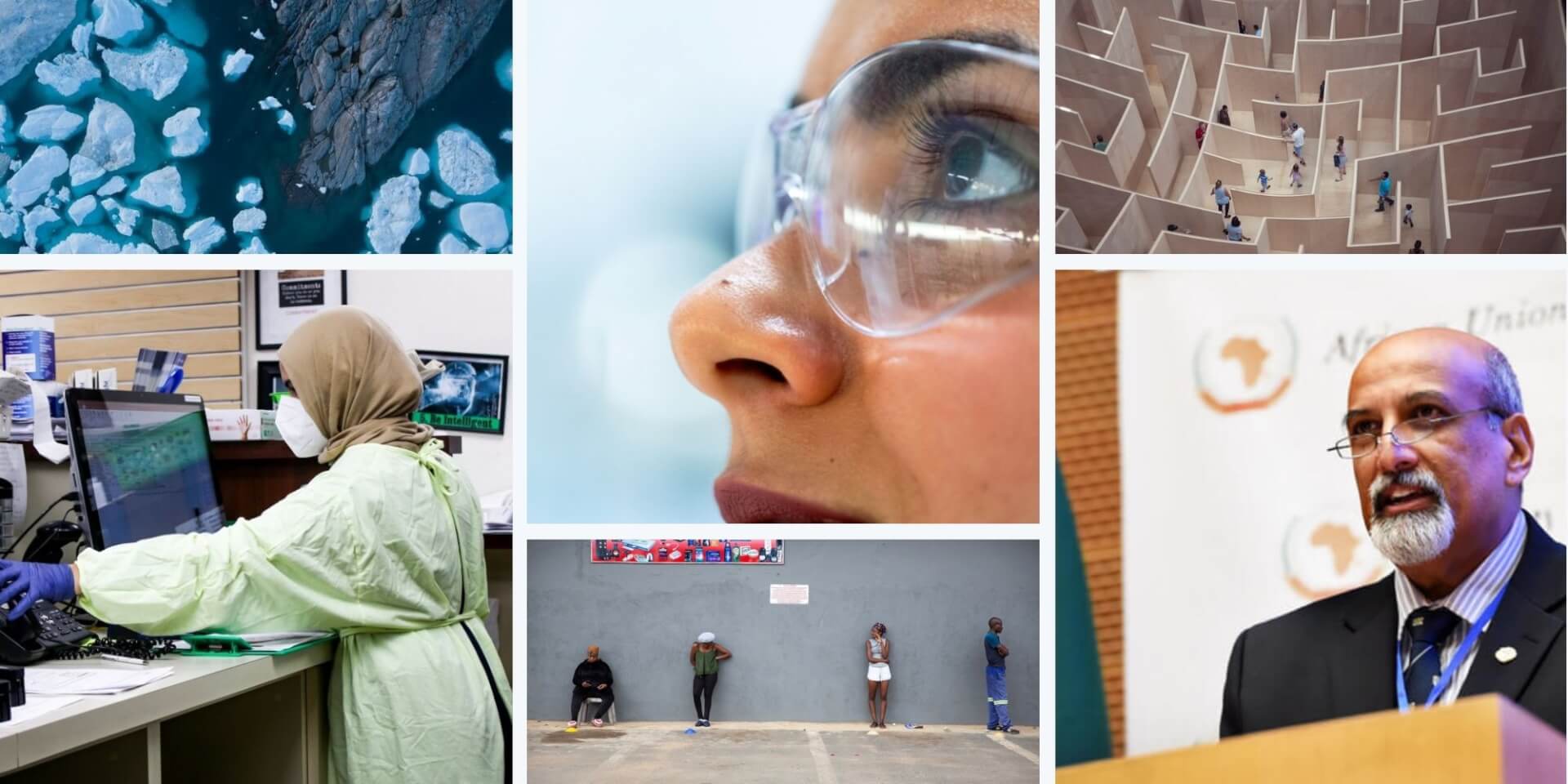
1. Women Scientists at the forefront of the fight against COVID-19
Women scientists have been crucial to the pandemic response. In order to ‘build back better’, we must continue to champion women and girls in science, and to counteract any negative effects of the pandemic on the careers of women researchers.
2. Climate explained: why is the Arctic warming faster than other parts of the world?
What is Arctic amplification? Do we know what is causing this phenomenon? What effects is it having, both in the region and for the world? Is Antarctica experiencing the same thing?
3. The implications of COVID-19 on urban development research in Africa
The COVID-19 pandemic reminds us of the importance of context in urban research – and the need for researchers to grapple with uncertainty in charting more sustainable future pathways, writes Daniel Inkoom.
4. Lessons learned from COVID-19 for the Science-Policy-Society Interface
The collective global experience of the Covid-19 pandemic has provided an unprecedented opportunity to examine the relationship between science, policy and wider society in what is often called the science-policy-society interface(s).
Kristiann Allen, University of Auckland, New Zealand and the International Network for Government Science Advice (INGSA) explore the lessons learned during the pandemic and provide six recommendations moving forward.
Curbing greenhouse gas emissions in line with the Paris Agreement will require greater action from all stakeholders – policy-makers, cities, regions, businesses, investors and society-at-large.
Prof. Salim Abdool Karim, leader of the South African Ministerial Advisory Committee on COVID-19, describes in this podcast with the Lancet, the discovery of the Omicron SARS-CoV-2 variant, explains what we know about it so far, and discusses how South Africa feels about the global response.
7. Celebrating women scientists on International Women’s Day, and every day
International Women’s Day is celebrated every year on 8 March. It is an important opportunity to recognize the work of women scientists around the world, and to stand up for their freedoms.
8. Combating the impacts of COVID-19 on women in STEM
A new report presents the key findings of research into the impacts of the COVID-19 pandemic on women in the science. technology, engineering and mathematics (STEM) workforce in the Asia-Pacific region.
9. Using the COVID-19 pandemic to transform the energy sector
The ISC-IIASA Rethinking Energy Solutions Report identifies the negative and positive lessons learnt from the ongoing COVID-19 pandemic in relation to energy consumption and demand, and recommends several immediate actions.
10. Working Scientist podcast: Why does diversity in science matter?
We all have the right to share in scientific advancement and its benefits – it’s a fundamental human right. What’s more, having diverse perspectives and ideas helps science to progress.
Read the transcript | 12 minute, Listen to the podcast | 14 minutes

Virus snowflake patterns by Ed Hutchinson / MRC-University of Glasgow Centre for Virus Research (CC BY-4.0)